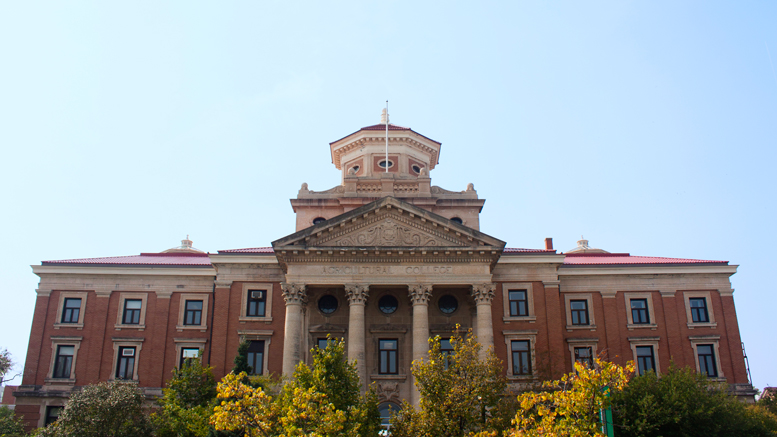Students from University of Manitoba Student Action Network – a chapter of the Revolutionary Student Movement (UMSAN RSM) – staged a sit-in in the office of U of M president and vice chancellor David Barnard April 5.
The action was in protest of tuition hikes, healthcare cuts, and in solidarity with striking contract faculty, teaching assistants, and other workers at York University.
Canadian Union of Public Employees Local 3903, a unit representing contract faculty and staff at York, took to the picket line after the university’s contract offer “did not respond to educators’ needs.” The strike has been ongoing since March 5.
Several students entered the U of M administration building on the Fort Garry campus around 8:30 am and refused to leave until about 4:30 p.m. A release from the organization delivered to media overnight said the sit-in would last one day.
The administration building was placed on lockdown after the students entered the building, and media was not allowed into the area. While no students agreed to come outside to speak with media – they would not be allowed back inside – one provided a written statement through their phone that said “Education should be accessible, democratic, and inclusive.”
The sit-in was a part of the RSM’s “Reclaim our Campus” movement, a Canada-wide initiative in solidarity with the protests at York University.
According to John Danakas, spokesperson for the U of M, the students “forcibly” entered Barnard’s office and locked the door for a short time. Barnard then left the office, and was not on campus afterwards.
Ian Desales, a regional coordinator of the RSM, said the students entered the office to speak with Barnard and the door was only briefly locked.
“We made our demands clear, made clear why we were there,” he said.
“One of our comrades thought maybe we should lock the door, and turned it locked just to see how it worked. We all voted immediately that we would not lock the door, and so the door did not remain locked for any amount of time.”
A student who is a member of the RSM, but not involved in the action inside the administration building, denied forcible entry, but confirmed students did enter the office and refused to leave.
The student, who asked to only go only by Elizabeth, said the sit-in was in response to recent changes in university policy.
“The purpose of the occupation is an act of solidarity, and an act of protest,” she said.
Desales said RSM’s demands include a reversal of a recently announced tuition fee increase, that the university no longer be “complicit” in cuts to international student healthcare, and the eventual removal of tuition fees entirely.
“More broad than that, we hope to create an education system, or establish an education system at some point, that truly works in the interests of the people,” he said.
The provincial government recently announced plans to cut universal healthcare coverage for international students, and the U of M announced last week that it will be increasing tuition by 6.6 per cent for the upcoming 2018-2019 school year.
Students were not allowed to enter the building for the duration of the sit-in. Danakas said the U of M supports free speech, but added that today’s sit-in presented a safety concern for some on campus.
“There is great and abiding respect for free speech in the university community,” he said.
“There is also an expectation to feel safe, and an event such as today’s undermined that feeling for many individuals.”
Students in the administration building spoke with Norman Meade, a University of Manitoba Elder, and vice president external John Kearsey.
The sit-in wound down peacefully and Danakas said the students left “without incident.”
Desales said that the future goals of the RSM are to expand on its current approach to activism, and work to explore it on a wider scale.
“What comes next is continual escalation,” he said.
“Last year, we hosted a rally. This year, we’ve done a sit-in. Next year possibly more sit-ins, possibly larger sit-ins. Eventually we want to work towards a student strike – not just at our university, but all across the province, all across the country, and just continual. We want to be creative with it too, and find new ways to escalate our struggles.”


